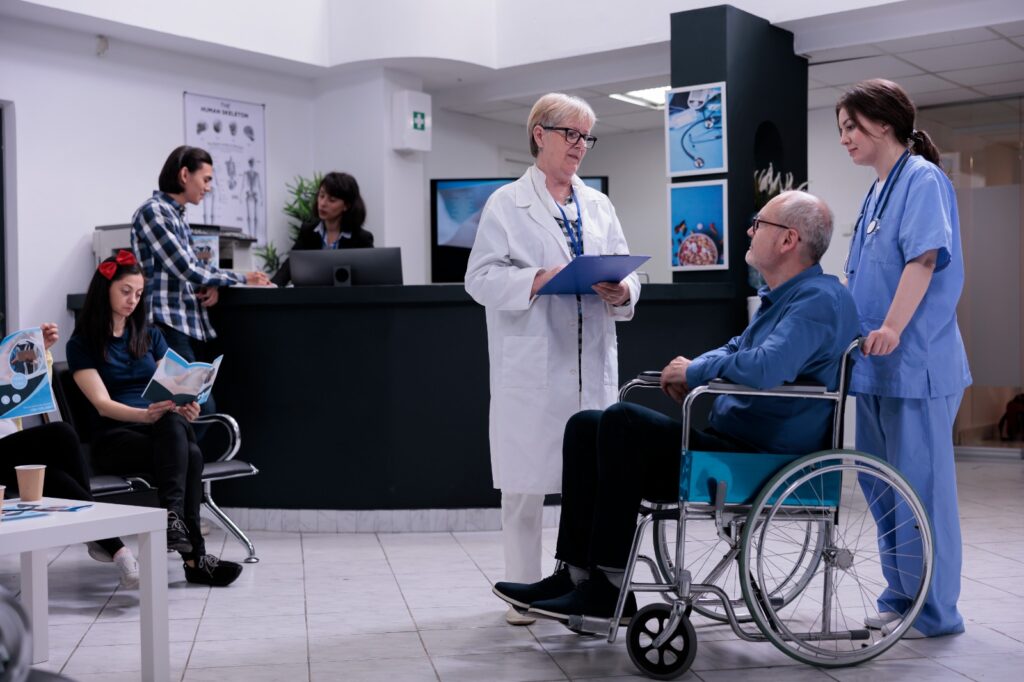Nestled between small businesses and well-traveled walkways on a peaceful street in Ardee is a medical practice that has quietly established a reputation that many urban giants cannot match. John Street Surgery doesn’t run neon ads or make headlines. It is not required to. This location has become the healthcare equivalent of an extended family kitchen for generations of residents; it is comfortable, familiar, and always available when it counts.
John Street Surgery is notable for its consistency rather than its size or technology. This clinic operates differently than larger facilities, which frequently seem like conveyor belts of fleeting encounters and administrative hold-ups. Names, not numbers, are used to greet patients. A deliberate model that transforms clinical care into connection, the space has a rhythm that is relaxed and incredibly human.
| Practice Name | John Street Surgery Ardee |
|---|---|
| Website | johnstreetsurgery.com |
| Address | John Street, Ardee, Louth, Ireland, A92 E3WY |
| Main Practitioners | Dr. Eleanor Ward, Dr. Maura Shanahan |
| Additional Staff | Dara Maguire (ANP), Emma Greene (Practice Nurse) |
| Opening Hours | Mon–Fri: 08:00–18:00, Sat: 08:00–13:00, Sun: 09:00–12:00 |
| Main Services | General consultations, chronic disease management, minor surgery, family planning |
| Accessibility | Public transport access, parking available |
| Prescription Policy | Repeat prescriptions require advance notice |
| Patient-Centered Care | Prioritizes individual needs, collaborates with external healthcare providers |
| Reference Source | Doctify Clinic Listing |
Dr. Eleanor Ward and Dr. Maura Shanahan, two physicians with a long history of dedication to community health, are at the forefront of this practice with exceptional unity. Due to her experience working in both rural and urban hospitals, Dr. Ward has a particularly adaptable perspective that precisely fits the local environment. Dr. Shanahan’s method, on the other hand, is based on presence—paying close attention, keeping a low profile, and taking decisive action. Together, they have developed a care blueprint that is informed by empathy rather than algorithms.

Practice Nurse Emma Greene and Advanced Nurse Practitioner Dara Maguire, who are both renowned for their clinical expertise and soothing demeanor, work in unison with them. They’re frequently the first to notice the little things that count, like a patient who appears unusually tired or a quiet cough that persists for too long, whether it’s a usual blood pressure check or the monitoring of chronic conditions. They act as the practice’s early warning system in many respects, subtly identifying issues before they become serious.
Notably, the clinic offers much more than just standard GP services. The practice provides a wide range of care with unexpected sophistication, from minor surgery and reproductive health to managing chronic illnesses. However, it never seems like a transaction. Patients are remembered rather than being cycled in and out. In addition to providing familiarity, this years-long consistency makes proactive healthcare possible, allowing histories to be known rather than merely scanned.
The clinic successfully combines conventional medical services with digital utility by integrating online repeat prescription requests. Functionality is more important than novelty. John Street Surgery skips the gimmicks and concentrates on what patients will actually use, while other practices chase technology for the sake of optics. The end effect is a technologically advanced experience that retains its human element.
The surgery’s availability seven days a week, which is becoming a more uncommon feature among rural clinics, further distinguishes it. Openings on Saturday and even Sunday mornings make it possible for caregivers juggling time-sensitive demands, parents running school runs, and employees with busy schedules to get care without interruption. The fact that patients aren’t left wondering what to do until Monday makes it a logistical detail with significant emotional significance.
These longer hours also result in fewer needless A&E visits, which saves resources for patients and the system as a whole. The clinic acts as a safety valve, reducing anxiety before it becomes a crisis by foreseeing needs and providing access when others do not.
Speaking with patients often reveals more than just their level of satisfaction. A lot of them talk about emotional experiences. One senior citizen described how, the day after her appointment, a staff member called to inquire about whether her breathing had improved. Another described how a skin lesion was discovered by the doctor, who recommended additional testing that ultimately saved the patient’s life.
These are not uncommon occurrences. These are recurrent stories that illustrate a pattern of attentive care.
When considering Ireland’s healthcare issues, which include systemic reforms, lengthy waitlists, and aging general practitioners, John Street Surgery is a unique success story. It’s incredibly dependable, not because it’s ostentatious. It carefully modernizes, evolves selectively, and always asks itself, “Will this help our patients?” before making a decision.
This surgery provides a convincing illustration of what is feasible for young general practitioners thinking about working in rural areas. Rural clinics can flourish with capable leadership, community support, and a readiness to change course when necessary. John Street is not an exception; rather, it serves as a reminder that, when presented purposefully, the fundamentals are still effective.
